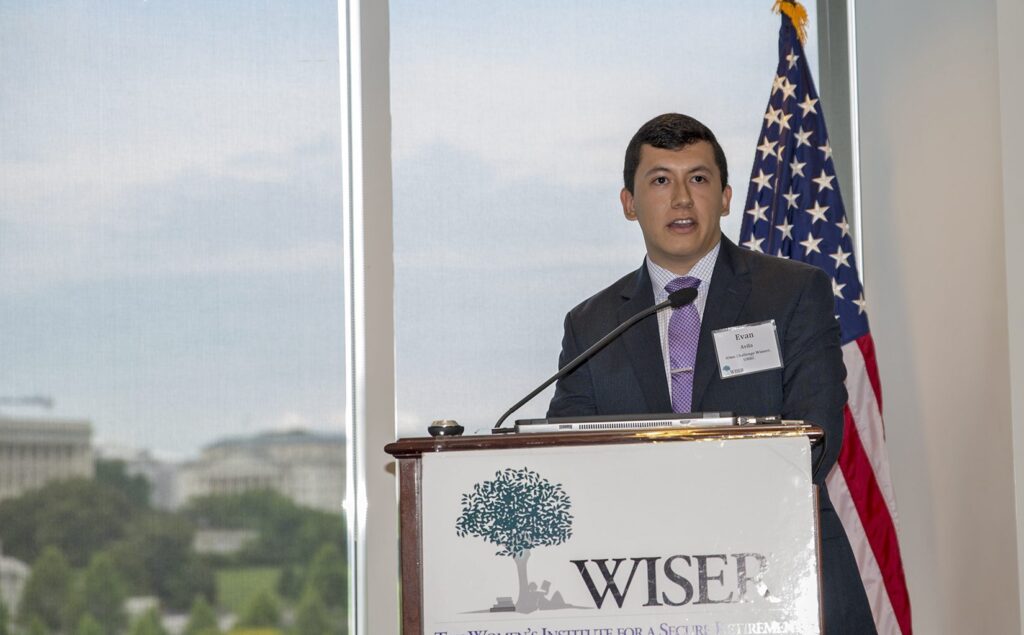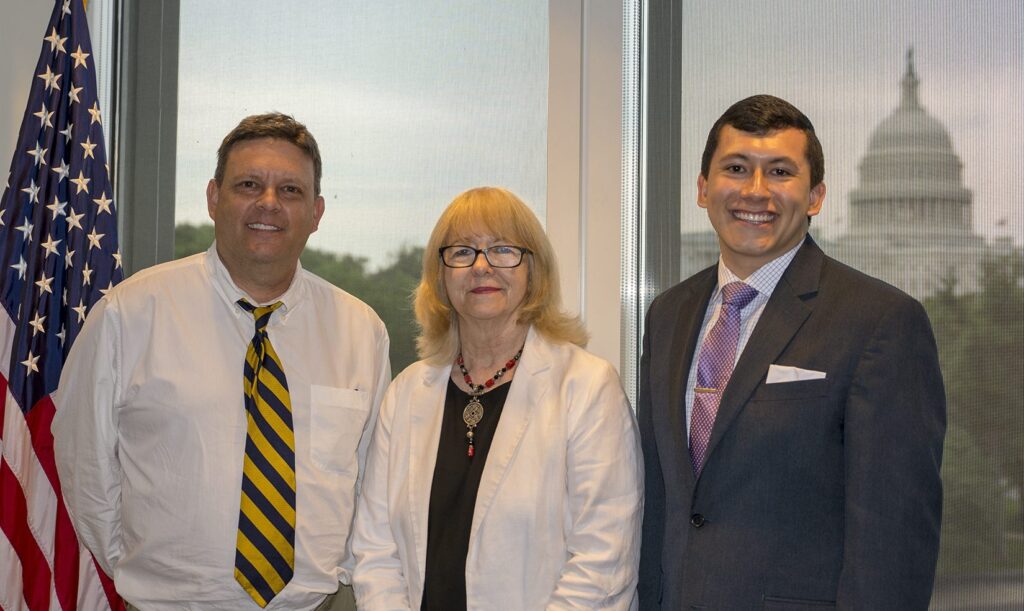Evan Avila ‘20, economics and political science, is a millennial with retirement on his mind, and his fresh ideas are now capturing the interest of policymakers. Avila recently won first place in the national 2018 iOme Challenge, which asked students across the United States to innovate policies to help millennials save for retirement. Avila presented his winning paper, Rethinking Millennial Retirement: Policy Recommendations for a Gig Economy, to policymakers on June 20 at a symposium on Capitol Hill.

This year’s iOme (“I Owe Me”) Challenge asked participants to imagine they were invited to join a bipartisan task force to address a growing retirement crisis in the U.S. What policies might they propose on issues relating to gig economy workers or using social media to increase awareness about saving for retirement?
Avila had dealt with these topics before, in the classroom and through volunteering with tax assistance and financial counseling. Avila has served as a certified volunteer in the federal Volunteers Income Tax Assistance (VITA) program at UMBC, which provides tax return filing support for eligible people no cost to them. He’s also offered financial literacy clinics for fellow college students and was familiar with their common questions and concerns about how to make smart financial decisions.
Avila applied this knowledge and experience to creating an iOme Challenge entry that contest judge David Wegge, interim dean of Schneider School of Business and Economics at St. Norbert College, said, “demonstrated great policy depth, a keen understanding of the challenges millennials face, and creativity in devising solutions that are achievable for this age cohort.”
Congrats to @iOmeChallenge winner & @UMBC student Evan Avila! His proposal to help #millennials save for #retirement includes “MEP IRAs” & a refundable savers credit. pic.twitter.com/VlTvDbYuL8
— ACLINews (@ACLINews) June 20, 2018
Cindy Hounsell is president of the Women’s Institute for a Secure Retirement (WISER), which sponsored the competition. She shared, “We are impressed by Mr. Avila’s response to the more complicated challenges and deterrents millennials face in preparing for their future retirement.”

UMBC economics professor Doug Lamdin mentored Avila as he developed his three-part policy proposal and transformed his essay into a video. He shares that typically students enter the contest as teams, but he wasn’t surprised that even competing as a team of one Avila emerged the winner.
“That Evan won the competition is not exactly a surprise. He had a very strong proposal,” said Lamdin. “Evan balanced the demands of the competition, usually placed on a team, exceptionally well in addition to a full class schedule, working as a teaching assistant, a research assistant, presenting at the Undergraduate Research and Creative Activities Day (URCAD), volunteering at the Esperanza Center teaching English, and his activities as a Sondheim Scholar.”
Avila, who recently completed his fourth semester with a 4.0, is currently serving as an intern in the Office of Comptroller of the Currency in Washington, D.C. This follows an internship in 2017 at the U.S. Census Bureau, where he worked in the Economics Indicators division, focusing on how to efficiently process massive quantities of survey data in a precise way.
Looking ahead, Avila plans to pursue a career in tax or administrative law. “I came from a Peruvian and Mexican household. I saw how hard my parents worked and the challenges they faced to have financial security,” says Avila. “In college, I see my peers trying to make sense of personal budgets, savings, loans, credit, and retirement. It is very rewarding to help people be financially literate and understand the laws and policies that affect their wallet.”
Banner image: Evan Avila with his economics internship supervisor in 2017. Photo by Marlayna Demond ’11 for UMBC.
Tags: CAHSS, diversityandinclusion, Economics, majoraward, SondheimScholars

